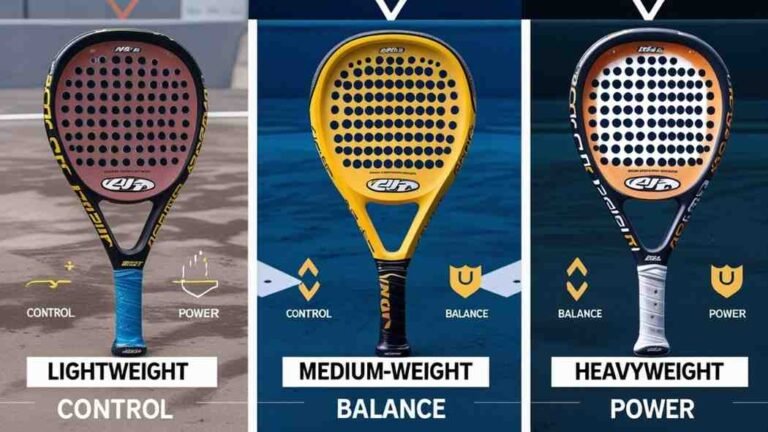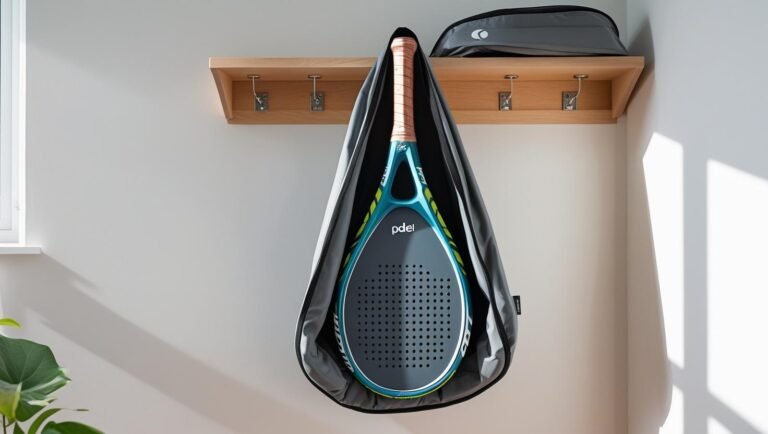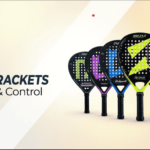Want a shortcut? Take a quiz and find your perfect Padel Racket in 30 secs.
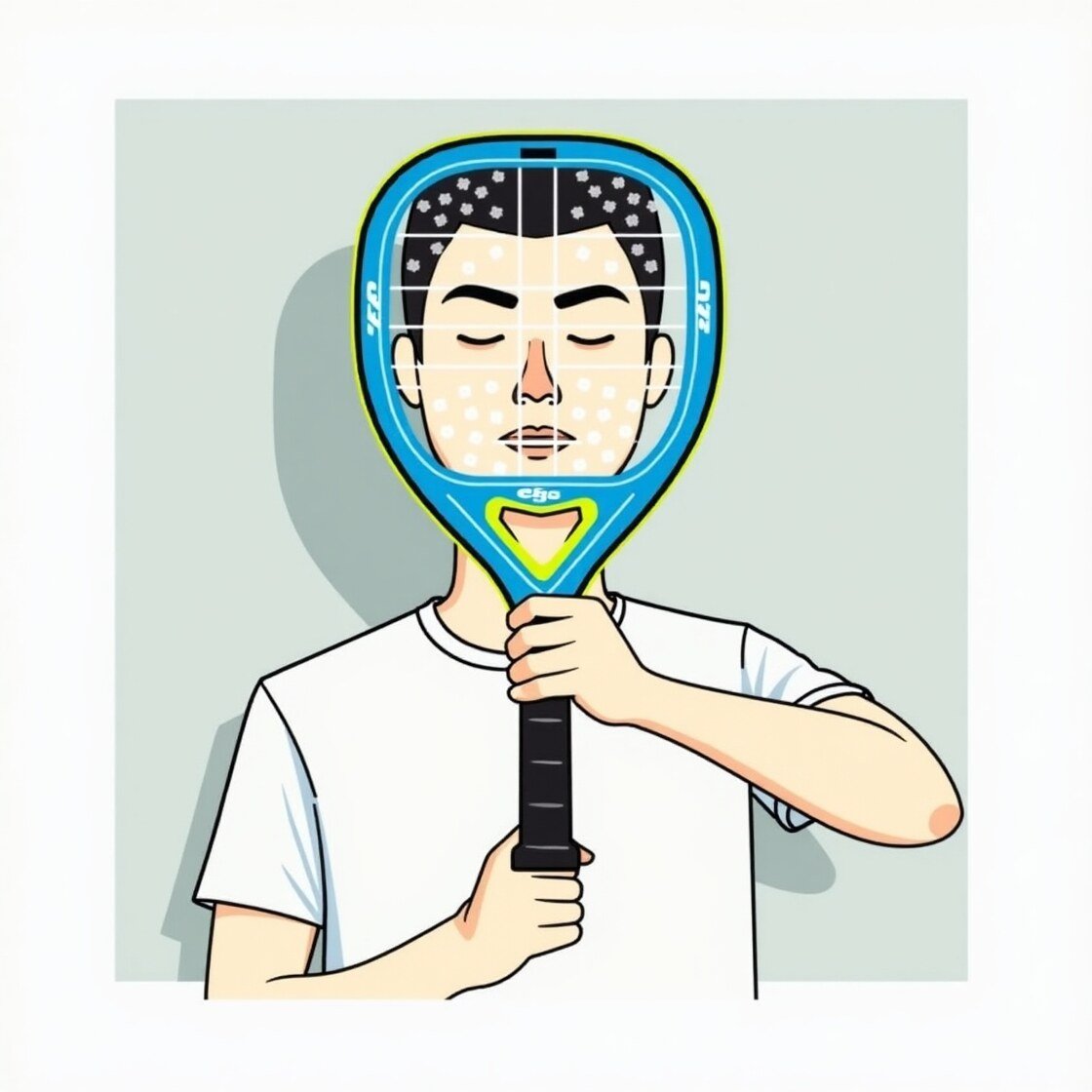
How to Grip Padel Racket Correctly 2026
The way you grip padel racket can change how you play. A proper grip improves control, power, and comfort, helping you hit the ball accurately and consistently. Many players struggle with grip technique, leading to poor shots and wrist strain.
Learning the correct way to hold a padel racket ensures better performance, reduced risk of injury, and improved shot precision. This guide will explain different types of grips, provide step-by-step instructions, and offer expert tips to help you find the best grip for your game.
Why Grip is Important in Padel
A proper grip is the foundation of every padel shot. It determines how much control, power, and comfort you have while playing. Many beginners struggle with grip, leading to inconsistent shots, wrist strain, and reduced maneuverability.
Here’s why grip matters in Padel:
1. Control Over Shots
Your grip affects the angle of the racket face, influencing the direction and accuracy of your shots. A stable grip helps you place the ball where you want it, aiming for a deep lob or a precise drop shot.
2. Power & Stability
A well-balanced grip ensures maximum energy transfer into each shot. If your grip is too loose or incorrectly positioned, you’ll lose power and stability, making it harder to generate forceful shots.
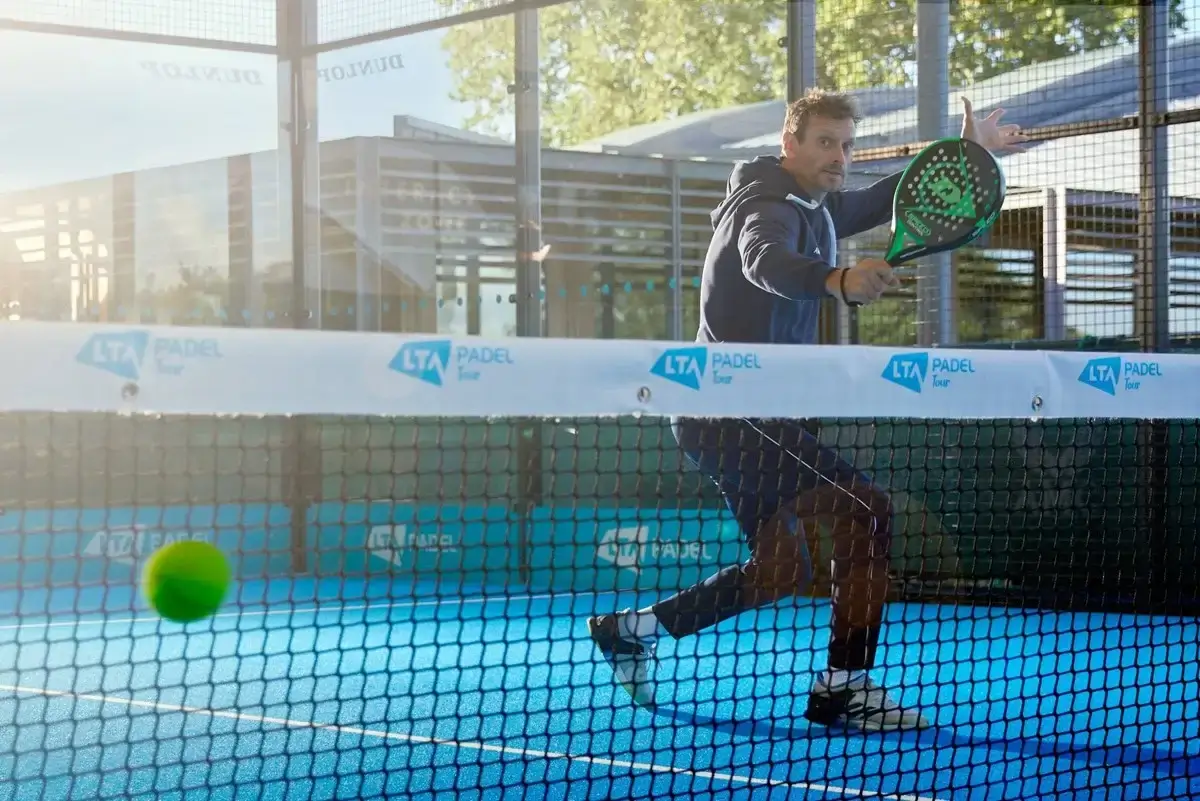
3. Reduced Injury Risk
A poor grip can strain your wrist, forearm, and shoulder, increasing the risk of tennis elbow and muscle fatigue. Holding the racket correctly reduces stress on joints and allows for smooth movement.
4. Adaptability to Different Shots
Different grips allow you to adjust your playing style depending on your desired shot. Whether you’re hitting a volley, smash, or slice, having a strong foundation helps you switch grips effortlessly during a rally.
By mastering your grip technique, you’ll gain better control, improved power, and lower risk of injury, making your padel game more consistent and enjoyable.
Types of Padel Racket Grips & Their Uses
Choosing the right padel grip can enhance comfort, control, and shot precision. Players use three main types of grips, each with specific benefits depending on playing style and shot preference.
Continental Grip (Universal Grip)
✔ Best for: Beginners & Versatile Play
✔ Why Use It: Ideal for forehand, backhand, volleys, and defensive shots
The continental grip is the most commonly used in padel. It balances power and control, making it an excellent choice for all-around play. Players can easily switch between defensive and offensive shots without changing hand position.
Eastern Forehand Grip
✔ Best for: Powerful Forehands & Smashes
✔ Why Use It: Generates more power and topspin
The eastern grip allows players to hit with extra power and topspin, especially on forehand shots and smashes. This grip helps attack the ball aggressively, making it a favorite among offensive players.
Western Grip (Extreme Topspin Grip)
✔ Best for: Heavy Topspin Shots
✔ Why Use It: Increases spin and ball control
The western grip is used by players who prioritize topspin in their game. It’s excellent for lifting the ball over the net with spin, but it can be difficult for beginners as it requires strong wrist control.
Which Grip Should You Use?
🔹 Beginners – Start with the continental grip for versatility and ease of use.
🔹 Intermediate Players – Use eastern grip for more power on forehands and smashes.
🔹 Advanced Players – Try the western grip to add more spin and variety to your shots.
Mastering different grip types will help you adapt to various playing styles and improve your overall performance on the court.

Step-by-Step Guide to Holding a Padel Racket
A correct grip can improve accuracy, power, and comfort during play. Here’s a step-by-step guide to ensure you hold your padel racket properly for maximum control and efficiency.
1. Start with the Continental Grip (Best for All Shots)
Step 1: Hold the racket like you’re shaking hands with it.
Step 2: Place your index finger slightly apart from the other fingers for a firm but relaxed grip.
Step 3: Keep the thumb around the handle, ensuring a secure but not overly tight hold.
📌 Tip: The continental grip is the most versatile and helps you effortlessly switch between forehand and backhand shots.
2. Adjust Your Grip for Different Shots
For Forehands: Rotate the hand slightly towards an Eastern grip for more power.
For Backhands: Keep the continental grip or slightly shift towards an Eastern backhand grip for better control.
For Smashes & Volleys: Maintain the continental grip to generate powerful, accurate shots.
3. Check Your Grip Pressure
- Too Tight? You’ll lose flexibility and power.
- Too Loose? The racket might slip and reduce control.
- Just Right? Hold the racket firmly but comfortably, allowing natural wrist movement.
Tip: A medium grip pressure helps absorb shock while allowing quick reaction time.
4. Use Overgrips for Extra Comfort
If the racket feels too small or slippery, wrap an overgrip around the handle. Overgrips provide better grip, sweat absorption, and cushioning.
Final Check: Are You Holding It Correctly?
- Your hand should feel relaxed but secure.
- Your wrist should not feel strained.
- You should be able to switch grips between shots easily.
Mastering the correct padel grip will enhance shot precision, reduce injury risk, and improve overall court performance.
How to Choose the Right Grip Size
Selecting the correct grip size for your padel racket is essential for comfort, control, and injury prevention. A too-small grip forces you to over-tighten your hold, leading to wrist strain. A too-large grip reduces flexibility, making it harder to maneuver the racket.
1. How to Measure Your Ideal Grip Size
Method 1: Finger Test
- Hold the racket in a continental grip position.
- Place your non-dominant index finger between the palm and fingers of your gripping hand.
- The grip size is correct if there’s just enough space for your finger.
- If it feels too tight or loose, consider adjusting the grip size.
Method 2: Ruler Test
- Open your dominant hand flat.
- Measure the distance from the middle of your palm to the tip of your ring finger.
- This measurement should match the ideal grip circumference of your padel racket.

2. Standard Grip Sizes & Who They’re Best For
- Small Grips (Under 4 inches) – Best for kids & players with small hands.
- Medium Grips (4 – 4.25 inches) – Most common, suitable for average adult players.
- Large Grips (Above 4.25 inches) – Ideal for players with big hands or those who prefer extra control.
Tip: If unsure, go for a smaller grip size and add an overgrip to adjust as needed.
3. Should You Use an Overgrip?
- Adds cushioning – Reduces pressure on hands.
- Prevents slipping – Helps maintain a firm hold, especially in humid conditions.
- Customizes grip size – Can increase grip circumference without changing rackets.

One or two overgrips can fine-tune your grip size for optimal comfort and performance.
Best Overgrips for Comfort & Performance
Overgrips improve grip feel, sweat absorption, and racket control. Whether you want extra cushioning, better durability, or improved sweat resistance, choosing the right overgrip can enhance your gameplay and comfort.
1. Wilson Pro Overgrip – Best All-Round Performance
Why Choose It?
- Soft and comfortable feel
- Great sweat absorption
- Thin design maintains racket feel

✔ Best For: Players who want consistent grip control with high durability.
Check out the Best Wilson Padel Racket
2. Tourna Grip Original – Best for Sweat Absorption
Why Choose It?
- Ideal for humid conditions
- Dry feel for extra grip security
- Used by professional players

✔ Best For: Players who sweat a lot need a dry and non-slippery grip.
3. Babolat VS Overgrip – Best for Thin & Natural Feel
Why Choose It?
- Ultra-thin for maximum racket feel.
- Maintains grip firmness without bulk
- Soft texture for extra comfort

✔ Best For: Players who prefer a lightweight grip without added thickness.
Learn About the Best Babolat Padel Racket.
4. HEAD Xtreme Soft Overgrip – Best for Extra Comfort
Why Choose It?
- Soft cushioned feel for shock absorption
- Perforated design enhances sweat control
- Provides a tacky grip for better control

✔ Best For: Players who want extra comfort while maintaining a firm hold.
5. Yonex Super Grap Overgrip – Best for Durability
Why Choose It?
- Long-lasting grip texture
- Smooth and tacky surface for better grip retention
- Absorbs moisture effectively

✔ Best For: Players looking for an overgrip that lasts multiple matches.
Conclusion
Mastering your padel grip is essential for improving your gameplay, control, and shot accuracy. A proper grip helps prevent injuries, enhances racket maneuverability, and ensures consistent performance.
By understanding the different grip types, selecting the right grip size, and using high-quality overgrips, you can optimize your playing experience and easily adapt to different shots.
If you’re starting, focus on the continental grip for versatility. Experiment with overgrips to find the right balance of comfort and control. Fine-tune your grip to match your playing style and shot preferences as your skills develop.
A firm grip foundation will allow you to play confidently, control power, and improve your performance on the padel court.
Ready for More? You’ll Love This Insight
- How to Choose the Right Padel Racket
- Best Beginner Padel Rackets
- The Difference Between Fiberglass and Carbon Padel Rackets
- Best Padel Rackets for Men
- Best Padel Rackets for Women
- Best Budget Padel Rackets
- Best Head Padel Rackets
- Best Nox Padel Rackets
- Best Padel Rackets for Spin and Control
- The Evolution of Padel Rackets Over the Years
- Best Padel Racket Accessories
- Can You Use a Tennis Racket for Padel?
- Best Padel Shoes for top players
FAQs
To grip a padel racket correctly, use the continental grip, the most versatile and widely used grip. Hold the racket as if you’re shaking hands with it, keeping your fingers wrapped comfortably around the handle. Ensure your grip is firm but relaxed to allow wrist flexibility for better shot control.
The ideal grip size depends on your hand size. A general rule is to check if your non-dominant index finger fits comfortably between your fingers and palm when gripping the racket. If the grip feels too small, add an overgrip to adjust the size for better control and comfort.
Yes, overgrips enhance comfort, absorb sweat, and improve control. They allow players to customize their grip thickness and provide a better feel of the racket, reducing the risk of slipping during intense matches. Many professional players use overgrips to fine-tune their racket feel.
Overgrips should be changed based on usage and wear. If you play frequently, replacing your overgrip every 2-3 weeks ensures consistent grip quality. If the grip starts feeling slippery, loses tackiness, or absorbs too much sweat, it’s time for a replacement.
The continental grip is the most commonly used grip among professionals because it balances power and control. It allows quick shot transitions and is ideal for volleys, smashes, and defensive plays. Some players adjust their grip slightly for power shots or more topspin.
